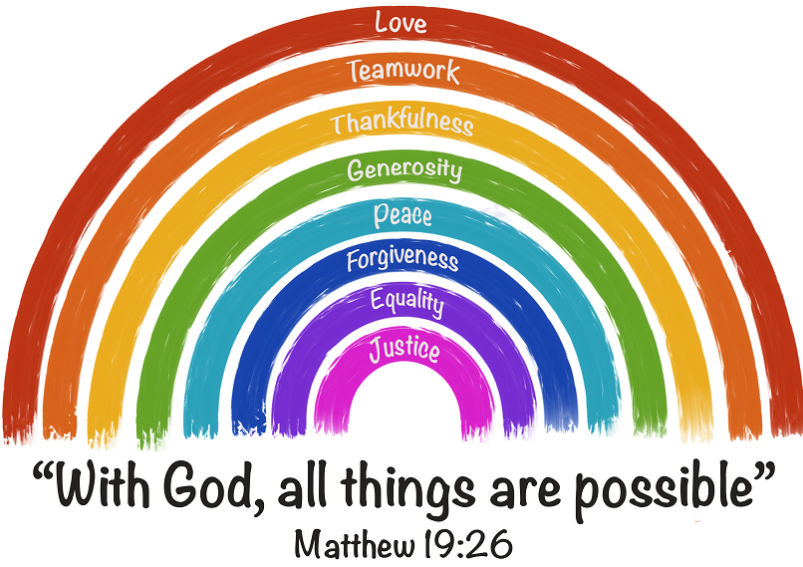Spirituality
At Westleigh Methodist, we aim to nurture everyone's minds, body and soul. We want our children to be happy, flourish and succeed in life and live in all its fullness.
We live out our core Christian values, every day, in everything we do.

We have chosen to define Spirituality as not being something we can see, it is something we feel. It is inside ourselves and also bigger than ourselves. We believe Spirituality is a deeply personal journey (and evolves on its own pathway) and is not dependent on religious affiliation. Spirituality helps us to understand ourselves and our place in the world. It makes our spirit shine.
We look at 4 elements of spirituality:
- Love (love of self and love of others)
- The world and its beauty
- Beyond (the unexplained)
We have a whole-school shared 'Language of Spirituality'. This includes using the concepts of windows, mirrors and doors.



We encourage children to wonder about life's:
- 'Wows' - things that are amazing and have awe and wonder
- 'Nows' - times of stillness
- 'Ows' - challenging event
Spirituality is not taught, but it is an interwoven part of all aspects of school life at Westleigh Methodist.
Our Spiritual Pathway at Westleigh Methodist
- Loving God in different places
Outside - Gardening Club, Reflection Area
Library - Wellbeing Lunch - Loving God with our senses
- Candles in worship
- During days when we celebrate religious festivals with food tasting and music
- Music - Loving God through rituals and symbols
- Whole school worship follows a structure
- School life centres around whole school worship and this provides a rhythm and routine to the school day - Loving God in solitude and simplicity
- There are moments in the school day for silence and stillness including during whole school worship
- Reflection Areas in the classroom
- Whole school Reflection Area run by Child Chaplains
- Prayer Spaces - Loving God through confronting and challenging unfairness
- Learning about courageous advocates
- History curriculum includes learning about inspirational figures
- Reading curriculum has books with social justice and inspirational characters at the core
- Pupil voice is heard (School Council, Ethos Committee, Child Chaplains, ECO Committee, Play Leaders, Reading Club Leaders, Prefects) and have the opportunity to make changes in school
- Children challenge social injustice through curriculum. For example, Year 3 wrote letters to the Australian government to persuade them to save the rainforest. - Loving God by loving others
- Robust Behaviour Policy
- Play Leaders develop relationships to support younger children
- Reading Club leaders develop relationships with younger children as they support them to read at playtimes
- Fundraising - locally, nationally and globally
- Visitors to school are involved in school life. For example, 'Open the Book' visits to share the Nativity and Easter story (See website page School Life / Personal Development -> Educational Visits and Visitors)
- Visits to a local care home to sing for residents - Loving God with celebration
- A range of music and singing is integral to our worship and celebrations.
- The choir has an active role in school - Loving God with the mind
- Curriculum is ambitious
- There is a chance for topic enrichment and home learning activities to encourage the broadening of knowledge. This work is then shared with families during our Curriculum Showcases. - Loving God through adoration
- Children have space to write their own prayers and reflections
- There is chance to sing in school worship and praise through movement
Spirituality Day 7.7.25
We want children to think about and delight in what makes their spirituality shine.
On our Spirituality Day, all classes will be looking at how school develops their mind, body and spirit to enable them to become fully rounded individuals.
